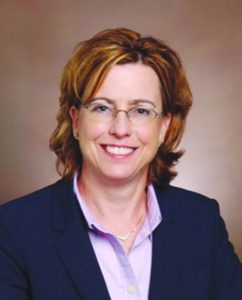Earth In Crisis: Righting Climate Wrongs
Clean Air And Water Should Be A Basic Human Right
By Tracey MacDermott
For the GPHN

On Aug. 1, Coloradans celebrated our 146th year of statehood. We have much to be proud of. The Centennial State is known for our expansive Rocky Mountains lining the West and the Great Plains to the East, Red Rocks . . . and our NBA champs, the Denver Nuggets!
Colorado seems to have it all: Skiing, stunning hiking trails, tasty microbrews, legal access to marijuana, Fourteeners to climb, plus a few notable folks who have contributed to our history — including that frozen dead guy. With all our surrounding beauty and opportunities for recreation, our history, like that of the rest of the country, is not without injustice and tragedy.
Prior to the Spaniard’s arrival, Colorado’s residents were comprised of Native tribes, including Apache, Arapaho, Cheyenne, Pueblo, Shoshone and Ute. Colorado’s second governor was John Evans. His culpability in the horrific massacre at Sand Creek left approximately 230 Cheyenne and Arapaho people dead.
There have been stepped-up efforts to remove Evans from the mountain that bears his name. In addition, groups and government agencies have lately added land acknowledgements to kick off meetings. While these are a start, we have a long way to go to rectifying the unspeakable damage to our Native American communities in Colorado.
Our state’s environmental history too, is a mixed bag of good and bad.
Colorado has been known for its brown cloud, diminishing snowpack and more recently, devastating wildfires. Our state has failed year after year to meet air quality standards. The Colorado River is divided between seven states and is drying up from over-allocation and climate change. So many depend upon the Colorado to simply live — including Native Americans living on reservations, which have rights to about one-fourth of the river. Yet, is estimated that 30 percent of the people in Navajo Nation live without running water.
How we address climate inequities and continuing disservice to the original occupants of our state will determine how we will be viewed by future generations.
Speaking of addressing the climate, Colorado’s legislature was busy this near — and the result was a mixed bag.
First the bad news: Senate Bill 23-295, creating a Colorado River Drought Task Force, ended up being scrapped. The bill was designed to develop programs to address drought in the Colorado River basin and work with relevant stakeholders. A sub-task force would have been formed to study related issues impacting tribes. In a double blow, in June — after Colorado’s legislative session ended — the U.S. Supreme Court ruled against the Navajo Nation regarding water rights along the Colorado River, denying their request to secure more water.
Now some good news: Colorado’s HB 23-1242, passed and will require oil and gas industries to reduce their use of fresh water, and increase recycled or used water in its operations. This is a huge win for Colorado Coalition for a Livable Climate, the group that championed this bill. It’s also a win for our state’s fresh water supplies.
More good news: HB 23-1252, dealing with thermal energy, also passed. This bill authorizes the “Colorado energy office to award grants for retrofitting existing buildings for installation of a geothermal system for heating and cooling under the single-structure geothermal grant that the office administers and for generating geothermal energy.” It’s an important step towards lowering our carbon pollution.
A third bill worth noting, HB 23-1210, also passed. The bill ensures that “carbon management projects, except for agricultural, forestry, and enhanced oil recovery projects, are eligible for money under the industrial and manufacturing operations clean air grant program.” Carbon capture is a hotly debated solution. Environmental leaders and groups had opposed this bill, citing expense, group-think behavior and efficacy. Many of these leaders would prefer that we focus on not putting carbon in the atmosphere in the first place.
Colorado’s legislature is done for the year, but the work on climate and climate injustice does not end. Native Americans, like other marginalized communities, are suffering the brunt of the climate crisis. They should have the ability to lead on decisions that impact their land and resources. So, this Colorado Day I urge you to raise your voice in solidarity with our Native American communities. We must ensure their right to access to clean water and air.
Let’s work together to secure a livable and equitable future for all.
Tracey MacDermott is an at-large member of the board of Greater Park Hill Community, Inc., and immediate past chair. She was trained as a Climate Reality Leader in 2017, and is currently the Statewide Co-Chair of the Climate Reality Project for the 100% Committed Campaign.
